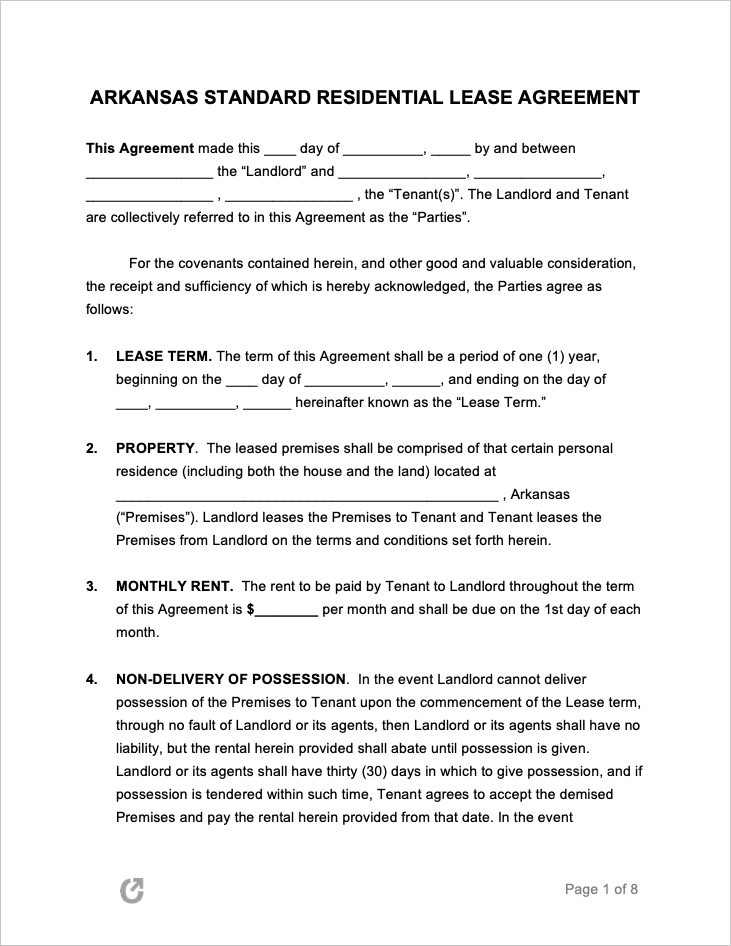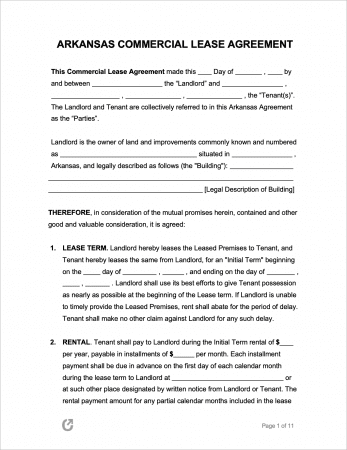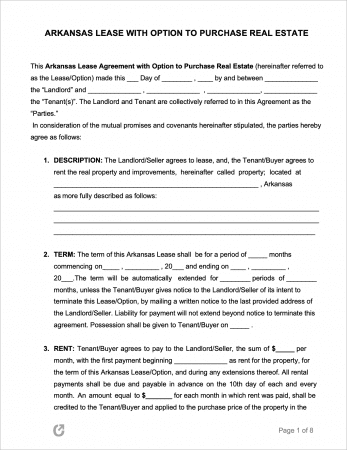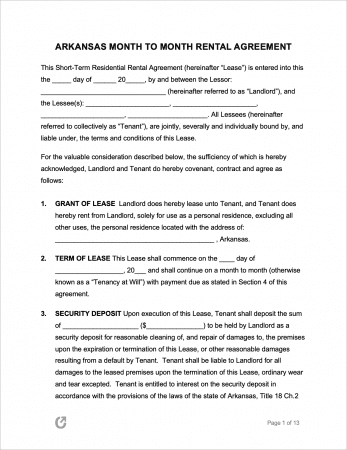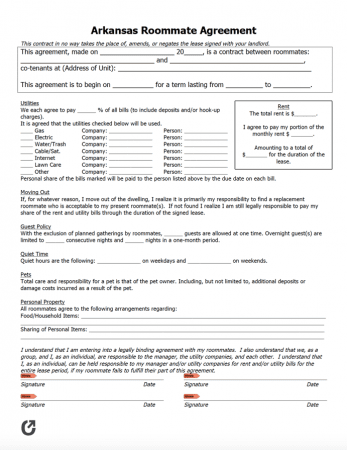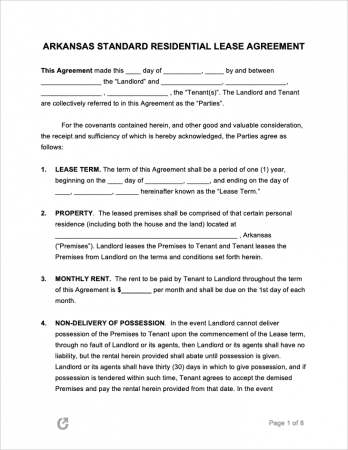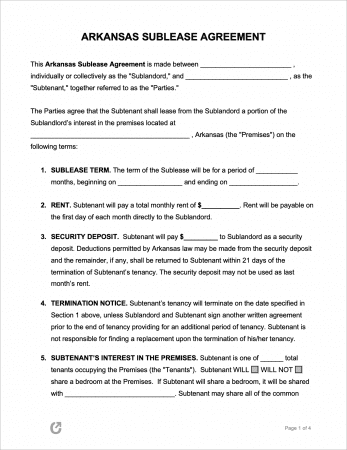Arkansas Rental Lease Agreement Templates
An Arkansas rental lease agreement is a property management document used for establishing a legally-binding relationship between a landlord and a tenant. The agreement specifies the amount and due date for rent, the maximum number of guests, the start and end dates of the lease, and much more. It is highly recommended that both parties keep a copy of the completed and signed lease so that it may be easily referred to in the case of a dispute or to clarify the terms of the lease.
Types (6)
| Commercial | Lease-to-Own | Monthly | Roommate | Standard | Sublease |
Which Form is Right for Me? | |
| Commercial | Used for renting out a non-livable property (e.g., office, hospitality, retail, industrial, and so on). Commercial lease terms are significantly longer than residential leases, with terms of five (5) to ten (10) years being common. |
| Lease-to-Own | A type of residential lease that gives renters the option of purchasing the property. A portion of each rent payment is saved to a down payment. If the renters decide not to purchase the property, the accrued down payment is lost. |
| Month-to-Month | This lease type allows either party to terminate the agreement with just thirty (30) days forewarning. Because of the flexibility provided to tenants, landlords often charge more rent for their month-to-month rental units. |
| Roommate | A simple form that allows roommates who are sharing the same apartment or home to establish rules and preferences regarding general living areas, guests, cleaning, more. |
| Standard Lease | The most commonly used leasing form. Provides legal protections and responsibilities to both the landlord and tenant(s) and has a standard term of one (1) year. |
| Sublease | Used by current tenants for leasing their apartment, home, or room to another tenant. Requesting permission from the landlord is highly recommended (and may be required per the lease). |
What is an Arkansas Lease Agreement?
An Arkansas Lease Agreement is a legal contract that sets out conditions for one (1) or more tenants to rent out a dwelling for a set amount of money that is paid each month to the landlord. It is in the best interests of the landlord to ask tenants to fill out a rental application prior to the signing of a lease agreement, so that they may verify their reliability.
State Laws
- Laws: Arkansas Residential Landlord-Tenant Act
- Law Overview: Arkansas Landlord and Tenant Law.pdf
When is Rent Due?
Rent is due on the date specified in the lease agreement (§ 18-17-401(a)). There is a grace period of five (5) days (§ 18-17-701(b)). Late fee stipulations are not covered by Arkansas state law, meaning that landlords are not allowed to issue them to a tenant unless late fee conditions are stated in the contract.
Landlord’s Access
Emergency: Although there is no specific state statute regarding landlord’s access during emergency situations, landlords have the right under federal law to enter a residence in the case of an emergency.
Non-Emergency (§ 18-17-602(a)): A tenant should not “unreasonably withhold consent” to allow the landlord to enter for a range of circumstances including inspecting the premises, making necessary or agreed repairs, and investigating possible rule or lease violations.
Tenant’s Duties
According to Subchapter 6 – “Tenant Obligations”, tenant’s are required to comply with the following obligations:
- Follow all requirements set by building and housing codes that affect both health and safety,
- Keep the rental both safe and clean,
- Dispose all types of trash / waste in a manner that is both clean and safe,
- Keep all plumbing fixtures included in the lease reasonably clean;
- Use all electrical, plumbing, sanitary, heating, ventilating, air conditioning, and other facilities in a clean manner,
- Do not destroy, damage, or remove any part of the rental (or allow any guest of the tenant to do so),
- Do not disturb nearby tenants (or allow guests to disturb other tenants),
- Comply with the lease and all rules enforceable by AK law.
Required Disclosures
Lead Disclosure: Landlords are required to disclose known lead paint hazards to tenants, in addition to providing an information pamphlet issued by the Government on lead-based paint hazards as an attachment to their written lease.
Security Deposits
Maximum Amount (Section 18-16-304): Landlord cannot charge more than two (2) months’ rent to the tenant.
Returning to Tenant (Section 18-16-305): Property or money must be returned to the tenant within sixty (60) days of termination of the tenancy. The money will become the landlord’s property in the case that they cannot find or get in contact with the tenant for up to one-hundred and eighty (180) days after the termination date.
Deposit Interest: No relevant statute.
